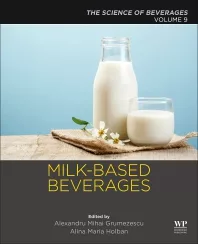IBWA highlights importance of recycling on Earth Day
Food, beverage companies continue to use more recycled content

As we commemorate this year’s Earth Day and its theme, “Restore Our Earth,” the International Bottled Water Association (IBWA) is reminding consumers that if we each do our part and recycle, together we can improve the quality of our environment and decrease our use of virgin materials in all recyclable product packaging, including bottled water.
Establishing good recycling habits begins at home. And with people staying at home more during the COVID-19 pandemic, eCommerce spending skyrocketed to $861 billion in 2020, up 44 percent from $598 billion in 2019, according to Digital Commerce 360. That means consumers are having their purchases shipped directly to their homes via a delivery service — and much of that shipping and product packaging is recyclable. It is important for consumers to properly dispose of all recyclables, including bottled water containers, which should be emptied and the caps replaced before you put them in the recycling bin, IBWA says.
“During the pandemic, collecting recycled bottled water containers remains a high priority for the bottled water industry,” said IBWA Vice President of Communications Jill Culora, in astatement. “Empty plastic bottles made from PET and HDPE are highly valuable, as they can be recycled again and again into new products.”
Bottled water companies have for many years been voluntarily increasing their use of recycled PET (rPET) and recycled HDPE (rHDPE) in plastic containers, IBWA states. In addition to the many food and beverage companies that have made public pledges to use more recycled content, some legislators are working to implement recycled content mandates. To meet these goals and requirements, consumer access to, and participation in, recycling programs must grow to help increase the supply of recycled content material.
“Improving plastic waste collection is essential not just for bottled water, but for the many other industries that use recycled plastic,” Culora said. “Using recycled plastic can drastically reduce the amount of virgin plastic that is introduced into the marketplace.”
PET bottled water containers are 100 percent recyclable. In addition, bottled water bottles use less plastic than any other plastic beverage container, the IBWA states. The average 16.9 ounce (half-liter) PET bottled water bottle weighs 9.25 grams for each container.
“It’s important for all of us to be thoughtful about how we manage recyclable packaging — of all types — because of the environmental benefits,” Culora said. “If you normally recycle, it’s important to keep up those good recycling habits—and if recycling is new to you, learn all you can about why we all need to recycle and place all of your recyclables in the bin.”
IBWA is active in helping to improve curbside recycling access through its involvement with organizations such as Keep America Beautiful and The Recycling Partnership, with a shared goal of making a measurable impact on improving recycling rates in the United States.
“IBWA encourages all consumers to choose bottled water as their preferred packaged beverage as part of a healthy lifestyle. And always recycle your empty plastic containers with the caps on,” Culora said. “The bottled water industry continues to be committed to making more sustainable product packaging to lessen the impact on the environment. If we each do our part, we can help reduce concerns about the health of our planet in the long-run.”
Looking for a reprint of this article?
From high-res PDFs to custom plaques, order your copy today!






